Black Historical Events & Milestones for September
Knowledge is a garden. If it isn’t cultivated, you can’t harvest it - African Proverb
Welcome to the 10th issue of ‘OUR Story’s Black History Facts’, where we dive into the histories of Africans, African-Americans, & others of the diaspora . The topics that are discussed include: music, art, literature, film, colonization, war, the transatlantic slave trade, politics, inventions, kingdoms and empires.
FYI: I’ve also turned on paid, if you would like to support me please consider upgrading for only $5.00 a month
September 1st:
1870: Abraham Galloway died in Wilmington. He was born into slavery, but escaped North in 1837. During the Civil War, Galloway led Black recruitment efforts in the federally occupied northeastern portion of the state to fill the ranks of what would become Gen. Edward Wild's African Brigade.
For the volunteers, he secured pay equal to that of the Massachusetts regiments, educational opportunities for soldiers' children, and support for their families, most of whom were destitute.
After the Civil War he became involved into politics by organizing the first freedmen’s convention in Raleigh. 1868 is when he was among the first Black men to be elected to the state senate. He would serve there until his death.
1975: Daniel “Chappie” James , a former Tuskegee Airman, became the first Black four-star general in the United States Air Force.
Sept 2nd, 1945: As World War II comes to an end, official records show 1,154,720 Blacks were inducted into the military services including 3,902 women. The highest ranking African American women during WWII were Majors Harriet M. West and Charity E. Adams.
September 3rd:
1918: Five Black soldiers were hanged from all-Black 24th Infantry Regiment of the U.S. Army for their alleged participation in what historians erroneously call the Camp Logan Riot which took place in Houston on August 23, 1917.
These men were hung without due process, which was just one of the many injustices endured by the five who had their lives taken from them. Below is a dramatic representation of this event in the film, “The 24th”.
1919: Lincoln Motion Picture Company owned by African Americans Noble Johnson and Clarence Brooks releases its first feature length film, A Man's Duty

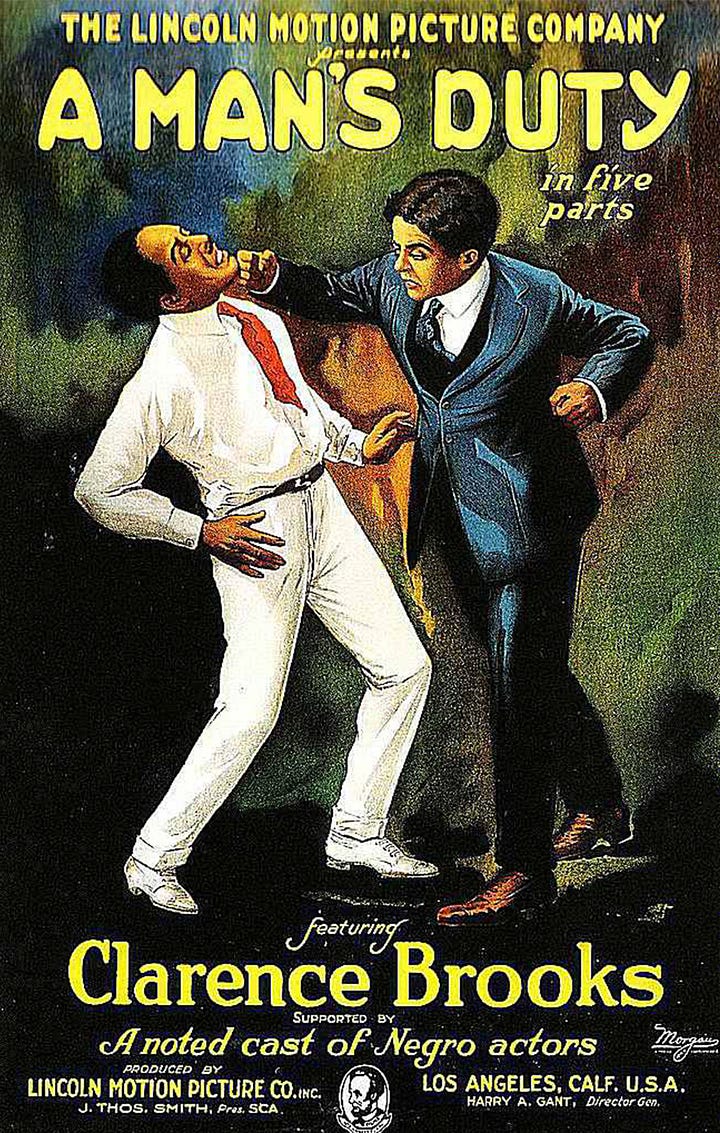
1946: Mark Renie (or Réné) DeMortie, antislavery, Republican Party activist, and business owner passed away. He was born a slave, but was emancipated by his owner in 1850. He learned to read and write and began to assist Norfolk, Virginia abolitionist members of the Underground Railroad in concealing nearly two dozen escaping slaves aboard merchant ships en route to Philadelphia, Pennsylvania, or New Bedford, Massachusetts.
His political connections allowed him to obtain a job in the customhouse in Boston and probably also explain his appointment as sutler of the all-black 54th Regiment Massachusetts Infantry in 1863 during the Civil War.
After the Civil War, DeMortie became part-owner of a Boston tailor shop. In 1865 he signed a call for sending a delegation of black men to Washington, D.C., to lobby Congress for equal rights. He also organized black workingmen to take the places of striking white railroad workers at the same wages the white men had earned. DeMortie served as a delegate to the 1868 Republican National Convention in Chicago. He entered the real estate business there but after about two years decided to move back to Virginia. By 1870 he was operating a Richmond factory that extracted oil from sassafras roots for sale to manufacturers of medicines and soap.1
September 6, 1968: Swaziland gained independence from British!
Britain had ruled over the nation since 1903. The British took control of Swaziland as a protectorate after the Boer administration collapsed at the end of the “Anglo-Boer War.”

The holiday is also called Somhlolo Day or Sobhuza Day. They call it this in honor of the nation's founder King Sobhuza I who ruled between 1805 and 1839 and was nicknamed "Somhlolo," meaning "Wonder" in the Swazi language.
eSwatini, or Swaziland, is the second smallest country in Africa. Swaziland is the only country in Africa not currently practicing multiparty democracy.
The country has one of the world’s last remaining absolute monarchies. The Swazi king rules the nation by decree.
September 7th:
1859: John Merrick, co-founder of the North Carolina Mutual Life Insurance Company was born into slavery on this day in Clinton, N.C. He would help make the Durham, N.C., based firm the largest Black controlled insurance company in the nation.
He learned to read and write in a Reconstruction school. Merrick later worked as a brick mason and as a barber when the construction business was slow. Merrick moved to Durham in 1880 to work at a barbershop that John Wright had recently opened. Soon after, Merrick bought half of the barbershop, and it was renamed Wright and Merrick. Within two years, Merrick achieved a personal goal to own real estate when he built a house in the African-American section of Durham, then called Hayti. In 1892, Wright moved to Washington, D.C. and sold the business to Merrick. Merrick expanded his barbershop business and opened barbershops that catered to wealthy white men.2
1919: Louise Bennett-Coverley is regarded as the mother of storytelling in the Caribbean is born. Miss Lou studied at the Royal Academy of the Dramatic Arts as a result of British Council Scholarship. She had her own BBC Radio program called Caribbean Carnival.
Among her many awards is the Doctorate of Literature from the University of the West Indies and the Norman Manley Award for Excellence. Miss Lou is retired from active stage work and lives in Toronto with her husband, Eric Coverley, who discovered the young Louise while he worked as an impresario.
1957: Ghana becomes the first African country to break from White colonial rule and become an independent nation. The West African nation, once known as the Gold Coast, was led to independence by the dynamic Pan-Africanist Kwame Nkrumah. Nkrumah would be overthrown in a military coup in 1966. He befriended American activists ranging from W.E.B DuBois to Martin Luther King Jr.
Illustration by
September 9th:
1934: Poet Sonia Sanchez was born on this day in Birmingham, Ala. She has authored more than a dozen books of poetry and has been a professor at several American universities.
Sanchez joined the Nation of Islam in 1972 but left in 1975 following a dispute over the issue of women’s rights.
1964: 15 African American students forcibly desegregated the school in Lawrenceville, Virginia. This pivotal moment in the state's history took place a decade after the landmark ruling in the U.S. Supreme Court case Brown v. Board of Education of Topeka, Kansas, which stated that racial segregation in public schools was unconstitutional.3
Sept 10th, 1847: John Roy Lynch is born into slavery on this day near Vidalia, La. Lynch would be among the first group of Blacks to serve in the United States Congress after slavery. He represented the state of Mississippi and served as temporary chairman of the Republican Party National Convention.
September 12th:
1977: Steve Biko, founder of South Africa’s Black Consciousness Movement died from injuries obtained from his arrest.
1992: Dr. Mae Jemison becomes the first African-American woman in space when she was launched from the Kennedy Space Center on this day as part of a joint U.S.-Japanese mission.
September 15, 1977: Chimamanda Ngozi Adichie was born in Enugu, Nigeria. She was the second African novelist I ever read apart from Chinua Achebe. I first fell in love with her in 2012 when I read her novel, “Half of a Yellow Sun".
This is my favorite because it opened up my eyes to another world a part from what I was conditioned to reading. With background setting during the Biafra War in Nigeria it tells the stories of two sisters who were of the Ibo (Igbo) elite. She was the second African writer I read and the first female one.
Her other works are: ‘Purple Hibiscus, “Americanah”, Zikora, The Thing Around Your Neck, Notes of Grief, ‘We Should All Be Feminist”, and her first children’s book “Mama’s Sleeping Scarf”.
September 16, 1931: The Brazilian Black Front (Frente Negra Brasileira) was founded by Arlindo Veiga dos Santos. This was a centralized organization that fought against racial discrimination and was involved in the inclusion of Black people in the Public Force of São Paulo. FNB developed significant socio-educational and cultural work: a school, a musical and theatrical group, a football team, a legal department and, in the health area, it provided medical and dental care. There were also political training courses, arts and crafts, and it was responsible for publishing the periodical “A Voz da Raça” (1933-1937).
According to Abdias Nascimento (1914-2011), the FNB split occurred due to the political polarization of its leaders: Arlindo Veiga dos Santos (1902-1978) led the Patrianovista Movement, which had a nationalist, conservative monarchist and traditionalist character and aligned itself with the Brazilian Integralist Action; and José Correia Leite (1900-1989) who joined the socialist movement. Abdias also stated, “As a mass movement, it was the most important organization that black people achieved after the Abolition of Slavery in 1888.4
Sept. 17, 1983: Vanessa Williams became the first Black woman named Miss America
September 20th, 1850: The United States Congress abolished the slave trade in the District of Columbia on as part of the legislative package called the Compromise of 1850. By 1860, free blacks outnumbered the enslaved by nearly four to one in the city.
September 21st, 1930: Kofi Awoonor died in Nairobi, Kenya.
He was a Ghanaian novelist and poet whose verse has been widely translated and anthologized. Listen to him read his poetry here.
September 23, 1884: Judy W. Reed of Washington, D.C. became one of the first African American women inventors to receive a patent for her dough kneader and roller.
September 25, 2011: Wangari Maathai died in Nairobi. She was a Kenyan politician and environmental activist who was awarded the 2004 Nobel Prize for Peace, becoming the first Black African woman to win a Nobel Prize.
She obtained a degree in Biological Sciences from Mount St. Scholastica College in Atchison, Kansas (1964), a Master of Science degree from the University of Pittsburgh (1966), and pursued doctoral studies in Germany and the University of Nairobi, before obtaining a Ph.D. (1971) from the University of Nairobi, where she also taught veterinary anatomy.
The first woman in East and Central Africa to earn a doctorate degree, Professor Maathai became chair of the Department of Veterinary Anatomy and an associate professor in 1976 and 1977 respectively. In both cases, she was the first woman to attain those positions in the region.
She was the founder of the Green Belt Movement and the 2004 Nobel Peace Prize Laureate. She authored four books: The Green Belt Movement; Unbowed: A Memoir; The Challenge for Africa; and Replenishing the Earth. As well as having been featured in a number of books, she and the Green Belt Movement were the subject of a documentary film, Taking Root: the Vision of Wangari Maathai (Marlboro Productions, 2008).5
Sept. 27, 1912: Composer, W.C. Handy published “Memphis Blues”
“Black history isn’t a separate history. This is all of our history, this is American history, and we need to understand that. It has such an impact on kids and their values and how they view black people.”
—Karyn Parsons
https://www.lva.virginia.gov/public/dvb/bio.asp?b=DeMortie_Mark_R
https://northcarolinahistory.org/encyclopedia/john-merrick-1859-1919/
Library of Virginia
https://www.geledes.org.br/frente-negra-brasileira-2/
https://www.greenbeltmovement.org/wangari-maathai/biography







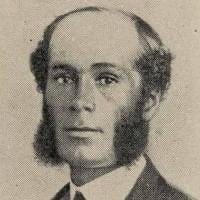

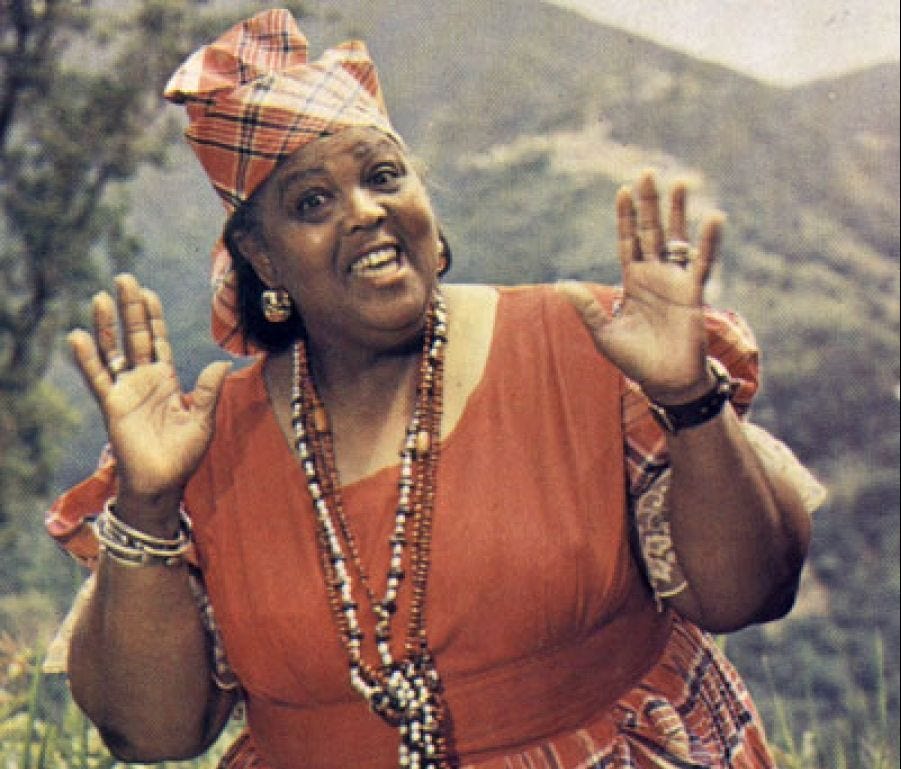



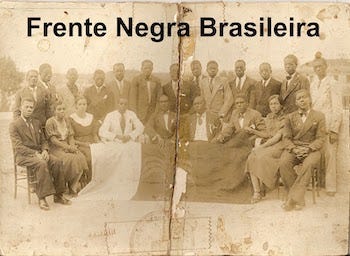


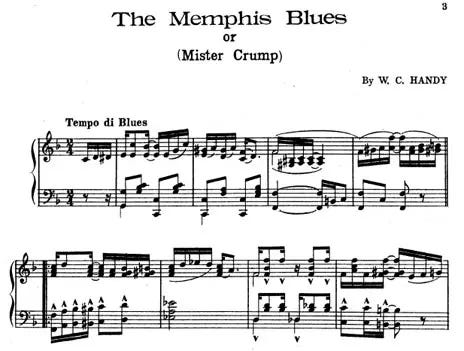
Thanks for your article. I’m learning how ignorant I am about Black history.
Hi, Lynelle! Wow, love learning with you. Thanks for writing this. Your existence is a gift to Substack. Looking forward to more.